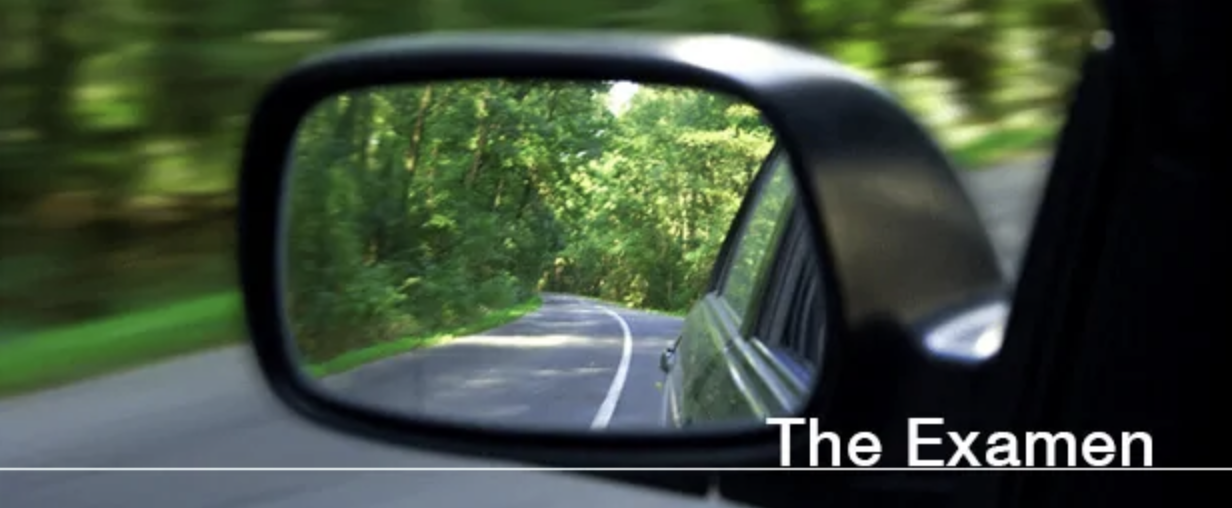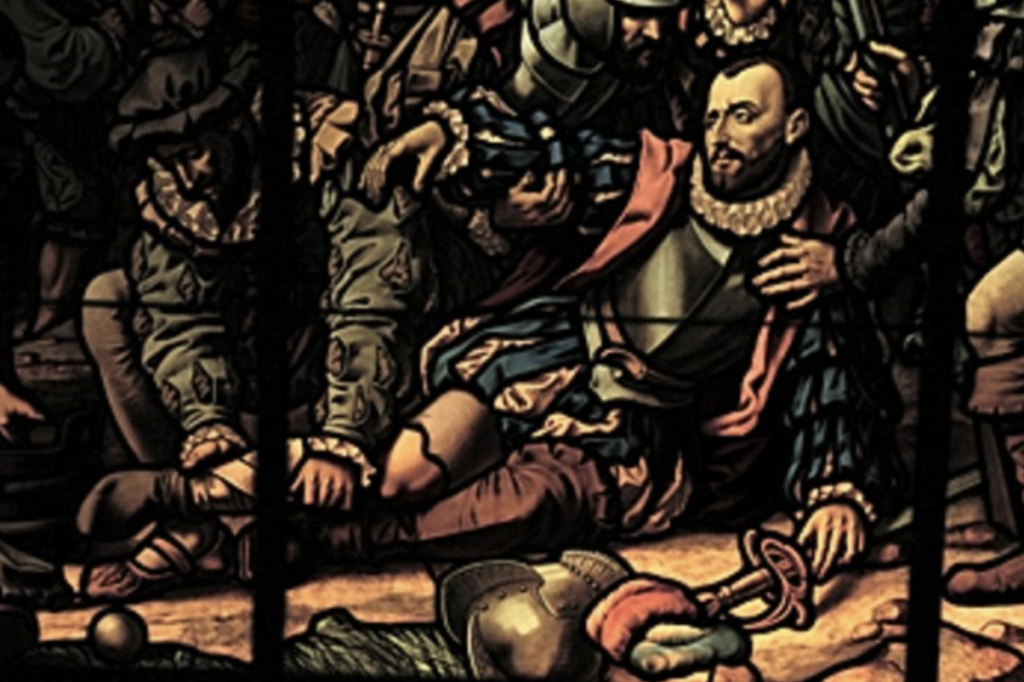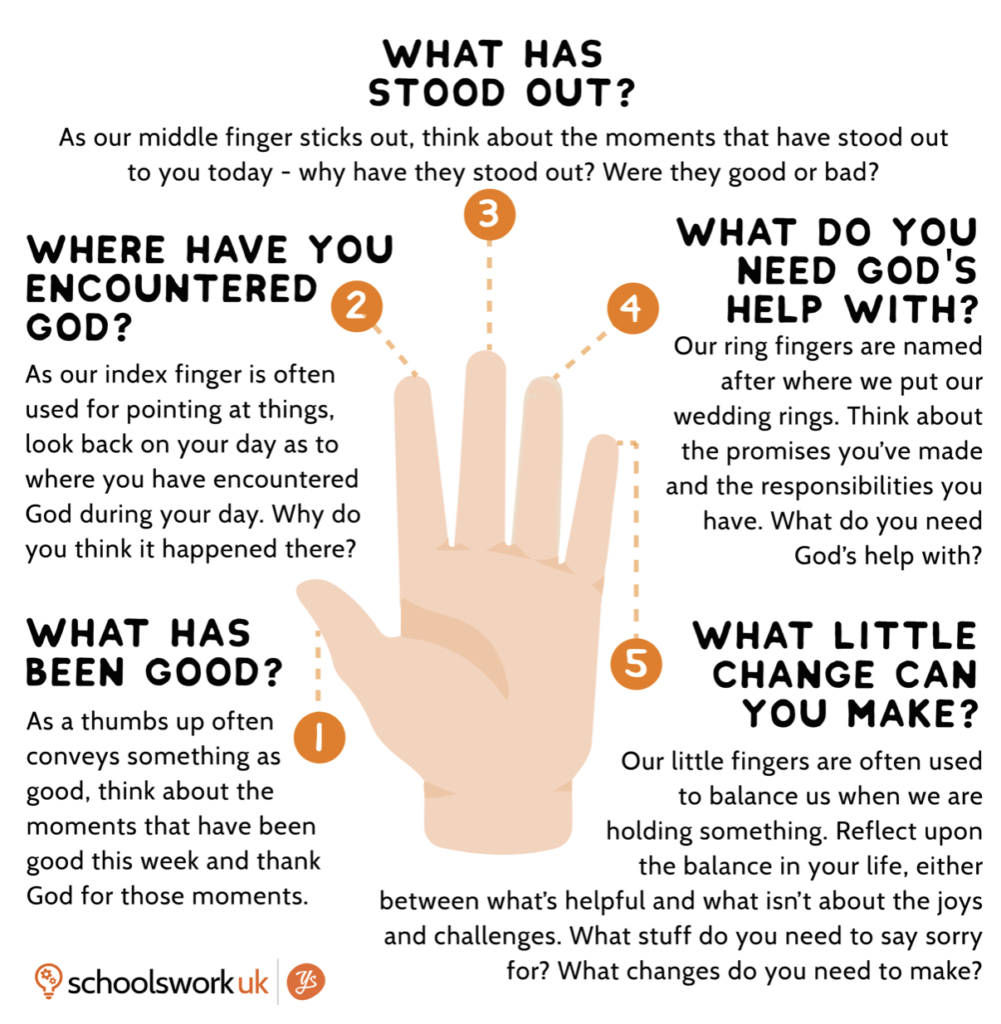
There’s an adage don’t look back we aren’t going that direction. That might be a good thing when regarding the Pandemic and seeking to return to normality but we want to learn and move forward. We want to have greater balance in our hectic topsy turvy lives. Here’s a way that could happen by looking back.
Welcome to this third of four short sessions exploring prayer. I can imagine those TV shows where the host says “Previously”… I hope we may have glimpsed that we can pray whenever wherever. We need not compose eloquent prayers but it’s a personal conversation with our loving God so silences are also cool. Last week we looked at where we can enter a scene and dialogue with God. It needn’t be a Biblical scene, and point we’ll draw upon today.
So how have you found any opportunities over the past week, times you can pray, moments when you have found life, scenes where you have re-entered and dwelt with God?
Today we look at what is known as the Examen. There are many forms of this type of reflective or retrospective prayer. Examen means tongue of a balance, to weigh accurately. It’s an examination of what has happened. So all we need to do is to spend time analysing what has happened in the past day and we are ok – we have done the Examen… Well I for one would like a framework, something I can quickly use to help me with that. Plus, I possibly can’t remember the whole day…It’s an age thing I’m told… The Examen helps us looking back.
The Examen has its origins within Catholicism. There was a chap called Ignatius who was as brave as brave could be, and he would tell any women that. In fact he was a bit of a womaniser to be honest. One day, in battle, he took a cannon ball to the leg – devastated it.

The medics of the day, lacking any form of proper anaesthetic operated on Ignatius but with limited success. He had to go to a safe place for convalescence. The Carmelite Nuns who looked after him didn’t have the raunchy books Ignatius savoured so he had to do with what they had on offer. Oddly he was transfixed by the battles contained within the Bible and that God’s love was better than the love he normally sought. Ignatius thought that the Examen was a gift from God, to help him review the day ‘with’ God. He had five steps
1. Become aware of God’s presence.
2. Review the day with gratitude.
3. Pay attention to your emotions.
4. Choose one feature of the day and pray from it.
5. Look toward to tomorrow.
To help me I use what is known as a five finger Examen. So we use our hand.

The Thumb indicates a good thing, a welcome positivity : those really good times, it doesn’t have to be religious but what has brought life – can we thank God for that?
Index finger, the one that points. As we focus upon particular aspects of the day, where did we encounter God? Don’t push for immediate answers, scan the day for moments when you realised that God was present.
The middle finger, usually the tallest finger : so what stood out, what key point or moment was pivotal perhaps: what might we wish to say to God here, and what might God be saying to us? This may be a time when we can revisit that scene with God – imaginatively.
The fourth finger may hold a wedding band or ring. It seems to indicate responsibility. What responsibilities do we hold, where might we need God’s help with?
The little finger, doesn’t go to market today, but we need it to balance, the meaning of the Examen. When we put our hand on a flat surface the little finger is that fine counter balance. What little changes might we consider in our life to give it greater balance? Speak to God about what brings life and what sucks life from us.
Using the Examen now
I’d like to invite you now to review some of today using the Examen. I’ll mention the relevant digit, say what might we focus upon but let you review that aspect – as you wish. Remember that the Examen is not a guilt-trip but what brings life. It’s a dialogue with our loving God not a tyrant.
So I invite you to get comfortable and perhaps focus upon one of your hands. Stay within each stage as long as you’d like.
As we look at our thumb, what’s been good today, what’s brought a smile or more to our faces. Can we say thanks to God?
Our Index finger allows us to scan a shelf, flick through a book, can we review the day, seeing where God was seen or felt or experienced, in us or through others. What might we say to God about this?
Our middle finger allows us to focus upon what stands out, whether it was good or not. Again, not to lay guilt on our shoulders, where was the pivotal moment of the day: how did you feel then and now about it? What might we wish to say to God? What does God say to us?
Our fourth finger is the one which suggests that we are responsible for some things. In what areas might we ask for God’s help in the days ahead?
Our little finger is the one which strives for balance. What small changes might we consider to give our life greater balance? What might God be saying to us?
Thank you Holy God for always listening, speaking, being with us. Amen.
So that’s simple. The five finger examen. Oh when should I do it? Recall the first session: whenever, wherever. It doesn’t need to be done at the end of the day. I have tried repeatedly and fallen asleep – although it does allow me to end the day well, being with God.
I have so little time…
How about when we have returned from work or shopping and having a cuppa. This doesn’t take more than a few minutes but entwines prayer into our lives.
What about after that difficult meeting? On the bus journey back. Look back using the Examen.

How about first thing – well after a cup of coffee perhaps – in the morning, looking back over the past day or week.
No one is holding you to account that it should be done daily – perhaps ‘with God’ is the key?
Have you used this before? Might this help you to prayerfully review the day/morning/evening/week/last meeting?
Alternative ways?
There are many online apps to help us here. There is the Jesuits Pray as You Go app which offers daily prayer, they also have a dedicated Examen webpage. For that periodic hour long experience with others from across the world there is Imagine, which includes imaginative prayer.
So over to you now. “Homework time!”
So in addition to praying whenever wherever, having a blether with God within a scene, we could now review a period of our day or night using the Examen. I’ll add additional resources to the blog post which will be emailed around tomorrow and to the YouTube video which is released in a few minutes time.
As the course is entitled explore, explore!
Let’s pray:
Creator God, each and every day (or night) we face challenges which can become our focus. Help us to see that you are present in our lives. Allow us to discern where we encounter you, see what has brought us life, and to seek to change those areas which can give us greater balance. Thank you for resting alongside all of us: so we may ‘be’ with you. Amen
Go with God’s blessing of peace today, tonight and in the days ahead.
Join us for the next session on 28th July at 7pm about Why God doesn’t answer all our prayers. A previous blog about this topic is available here.
I loved it I find reading the bible helps me